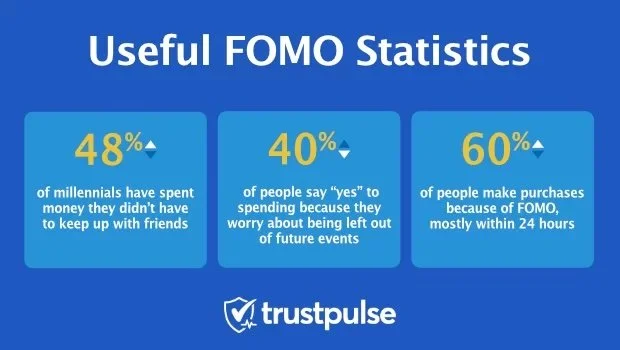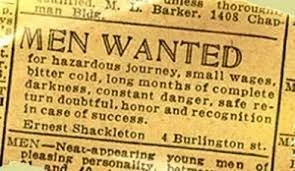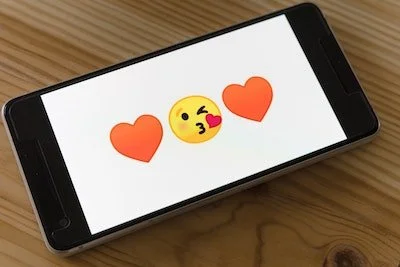What Tinder Taught Me About Advertising
About FOMO, copywriting & one-night stands
Tinder is a complex study of selling love with microtransactions.
But this week’s blog is about none of that.
Instead, it’s about a single line from some random person’s dating profile:
“Swipe right or you’ll never see me again!”
I once attended a talk by a creative director from Ogilvy who said he was curious to know how FOMO performed on Tinder.
And I was too!
Because I had recently seen the line above used as a profile text and thought it was both effective and memorable… but had for some reason still swiped left.
Of course, you might ask if it was really the line that made me do so. Or not more likely the pictures of the person who wrote it?
The unfortunate truth is that I don’t remember.
I only remember the phrase — that both worked on me and pushed me away.
Here’s why.
I have no idea if these numbers are right.
I think the line works because it understands FOMO and is worded well.
The fear of loss is a powerful behavioral tool, twice as impactful as the chance of gain.
There is a clear prompt on what to do and where to do it (swipe right!) before taking it away.
“If you swipe left, you’ll never see me again” might give fewer hits because it paints a mental picture of doing the opposite of the wanted reaction. Swipe right is… right.
Also, there are almost no superfluous words, which I love!
Maybe you could cut it to “Swipe right or lose me forever” but it’s still a very concise message.
Most long dating bios (like long ads) go unread.
This one gets read and gets reactions.
Furthermore, the line might work because it breaks with the expectations of an online dating bio.
It’s bold, almost provocative in its proposition, focused solely on the reader, and stands out in the marketplace.
So why did I swipe left?
Read on or you will never know.
Don’t Tell Me What To Do!
It’s not technically clickbait but it’s akin to it.
It’s prompting you to push a button by pushing your own psychological buttons without giving you any useful information or meaningful signals.
Clickbait disappoints because it uses cheap tricks without giving much of a reward.
A dating bio should be a self-fulfilling promise, like a brand-centric slogan that expresses core values and identity.
Simply making it about the reader and their FOMO is concerningly lacking in substance.
Costly or fishy signals?
When faced with “Swipe right or you’ll never see me again”, I remember being put off by the transparency of the strategy, not even covered with creativity.
But the more I think about it, the more I suspect it was the absence of identifying markers I expected from a bio that made me distrust the personal brand behind it.
It’s like the feeling you get when a telemarketer uses your name a suspicious amount. It seems out of place, like someone saying “hey, let’s be friends” while swinging a chainsaw…
The misplaced signals make you lose trust.
Put a human face on the brand.
In the context of Tinder, the line stood out by being different.
It used an effective behavioral lever in a surprising place with both theory and data from other markets to support it.
And I imagine it could in fact yield results — depending on whether it had KPIs for one-night stands or long-term relationships.
But that’s what I think.
What I know is that I swiped left because something felt off.
Something just wasn’t right.
While the line stood out, I still recognized the trick from half of every online ad I ever blocked.
It used an obvious trigger where I was expecting meaningful substance.
Maybe I’m hypersensitive… But a lot of people are.
The same behavioral tools that can be a pull to some can push others away.
Especially if they’re selling where they should be telling.
Know your audience.
FOMO can be measurably effective if your metrics are clicks only — even if they come from people who are less likely to fall in love with the brand.
Which in the case of Tinder is you.
So maybe you want to attract a slightly pickier crowd and not an uncritical mob?
If you use behavioral triggers in your advertising, you are wise to remember those of us who are sensitive to manipulation and need costly signals and brand identity to feel safe.
Make it meaningful with storytelling and something true about yourself — at least until you’re famous enough to make it about the consumer or the category.
In both marketing and online dating there is a lure to game the system — but at the risk of being blinded by metrics and forgetting the fundamental human gesture.
Good for short-term sales, bad for long-term loyalty.
Nudging vs. Negging
FOMO is a kind of mental scarcity.
And scarcity is usually a good start if you’re selling exclusive matters of the heart.
At least compared to social proof…
“Back on Tinder: Approved by more than 100 lovers”.
It wouldn’t really work, would it?
Gamification comes at a cost.
Behavioral biases are central to advertising.
But used poorly (or simply without empathy), they are easily exposed as manipulative programming and can push people away.
It’s why socially awkward nerds will go to pick-up conventions and see a psychopath on stage give “clever” tips for getting laid — only to end up even more lonely and miserable than before.
Because for all their psychological shortcuts, there is no fundamental human connection to build a future on.
Instead, the lonely chauvinists have their remaining reputation ruined: Shady and manipulative on top of being socially incompetent.
Simplistic game theory and poor KPIs make enemies of their audience, community and anyone decent.
FOMO: Chemical reaction or toxic tool?
Advertising is a foundational flirt and concrete courtship to build customer loyalty.
But you have to build from an honest core or risk being revealed as a corporate Tinder Swindler.
The behavioral tools that work deceivingly well in isolation can be a hammer blow to the brand's reputation if you aren’t careful.
Tell the most beautiful truth about your brand.
Make it effective with insights.
Make it human with empathy.
And if you’re smart, hire a writer to make it interesting with creativity…
Remember that psychological levers are best used by understanding their limitations.
Both when wooing partners in love and clients in business.
Life is more rewarding when you don’t try to hack it.










